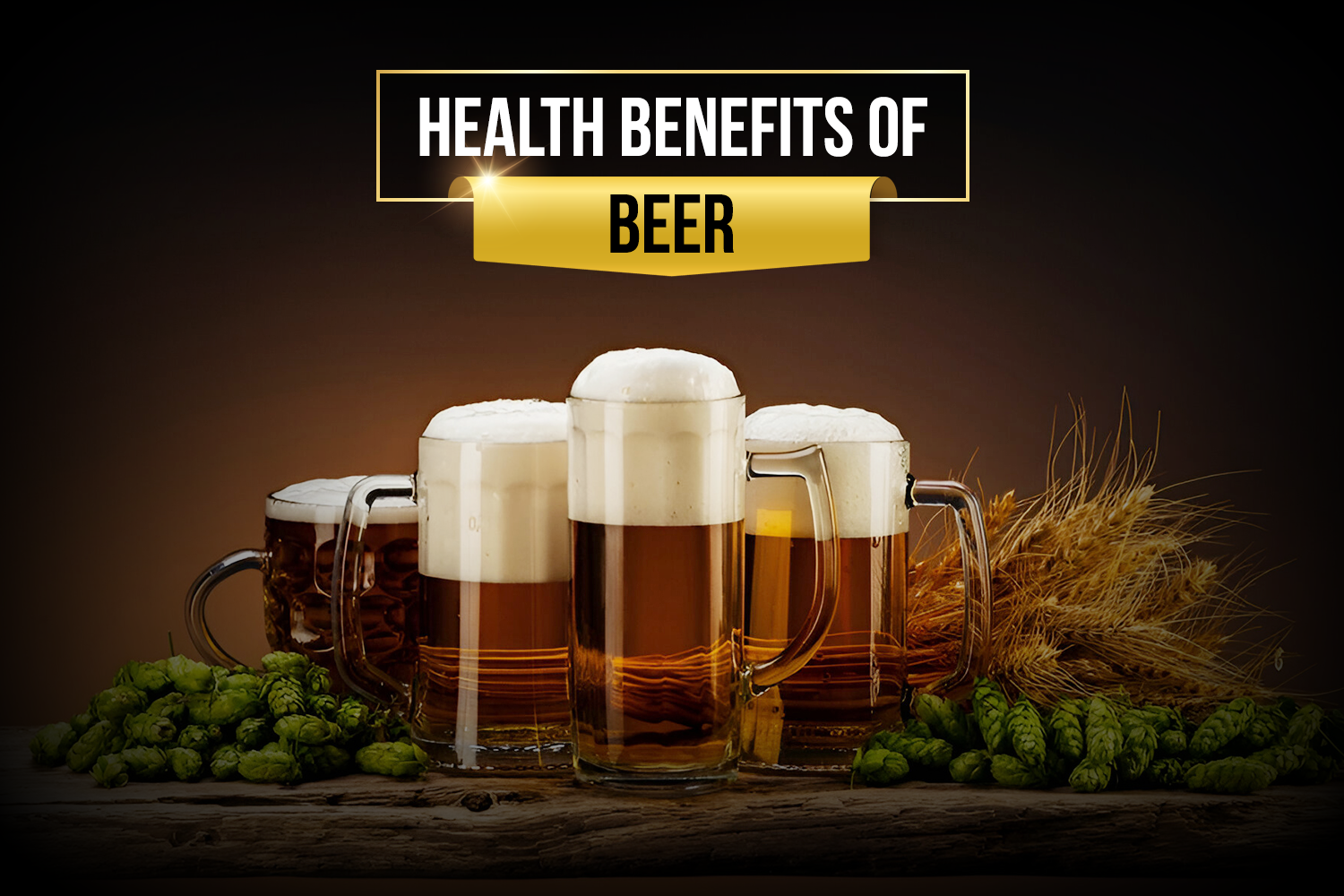Understanding Beer
Beer has been enjoyed for centuries, both for its taste and its cultural significance. Beyond being a popular beverage, beer can offer several health benefits when consumed in moderation. This blog explores the numerous advantages of including beer in a balanced lifestyle.
2. Health Benefits of Beer
2.1 Nutritional Value
Beer is rich in essential nutrients. It contains vitamins such as B6, B12, niacin, riboflavin, and folate, which are vital for energy production and overall health. Additionally, beer is a source of minerals like magnesium, potassium, and phosphorus, making it a nutritious choice when consumed responsibly.
2.2 Heart Health
One of the most well-known health benefits of beer is its positive impact on heart health. Moderate beer consumption has been linked to a reduced risk of heart disease. The antioxidants found in beer, particularly polyphenols, can help improve cholesterol levels and reduce blood pressure, contributing to better cardiovascular health.
2.3 Bone Health
Beer can also play a role in promoting bone health. Studies have shown that moderate beer consumption is associated with increased bone density due to its high silicon content, which is essential for bone formation. This makes beer a potential ally in preventing osteoporosis, particularly in older adults.
2.4 Cognitive Function
Interestingly, beer may have cognitive benefits as well. Research suggests that moderate beer drinkers may have a lower risk of developing dementia and cognitive decline. The antioxidants present in beer, along with its effects on blood flow, can contribute to improved brain health.
2.5 Diabetes Management
Moderate beer consumption has been linked to a lower risk of type 2 diabetes. Studies indicate that individuals who drink beer in moderation may have better insulin sensitivity compared to non-drinkers. This makes beer a potential choice for those looking to manage their blood sugar levels.
2.6 Stress Relief
Beer can also serve as a natural stress reliever. Enjoying a cold beer after a long day can help reduce anxiety and promote relaxation. The social aspect of beer drinking often enhances its stress-relieving effects, making it a great addition to social gatherings.
2.7 Social Benefits
Lastly, beer has social benefits that contribute to mental well-being. Sharing a beer with friends or family fosters social connections, which are essential for emotional health. Engaging in social activities while enjoying beer can lead to improved mood and overall happiness.
3. Moderation is Key
Recommended Intake
While beer offers numerous health benefits, moderation is crucial. The general recommendation for moderate beer consumption is one drink per day for women and up to two drinks per day for men. Excessive drinking can lead to negative health consequences, so it’s important to enjoy beer responsibly.
4. Conclusion
Final Thoughts
Incorporating moderate amounts of beer into your diet can be a delightful way to enjoy its health benefits. From promoting heart health to enhancing social well-being, beer can contribute positively to your lifestyle. Always remember to drink responsibly and consult a healthcare professional if you have any concerns.
FAQs: Health Benefits of Beer
1. Is beer good for your health?
Yes, beer can offer several health benefits when consumed in moderation. It is rich in vitamins, minerals, and antioxidants that contribute to heart health, bone health, and cognitive function. However, excessive consumption can lead to negative health effects, so moderation is key.
2. What are the key health benefits of drinking beer?
The primary health benefits of moderate beer consumption include:
- Improved heart health due to antioxidants
- Increased bone density thanks to its silicon content
- Enhanced cognitive function and a lower risk of dementia
- Reduced risk of type 2 diabetes
- Stress relief and improved social well-being
3. How much beer is considered healthy?
Moderation is essential for reaping the health benefits of beer. For women, one drink per day is considered moderate, while for men, up to two drinks per day is the recommended limit. Drinking more than this can lead to adverse health effects.
4. Can beer help with heart health?
Yes, moderate beer consumption has been linked to improved heart health. The polyphenols and antioxidants found in beer can help lower cholesterol levels and blood pressure, reducing the risk of heart disease.
5. Does beer help in improving bone health?
Beer is a good source of silicon, which is crucial for bone formation and maintaining bone density. Studies have shown that moderate beer drinkers tend to have better bone health, potentially lowering the risk of osteoporosis.
6. Can beer reduce the risk of diabetes?
Moderate beer consumption has been associated with better insulin sensitivity, which can reduce the risk of developing type 2 diabetes. However, it’s essential to balance beer intake with a healthy diet and exercise.
7. Does beer help reduce stress?
Yes, enjoying a beer in moderation can help reduce stress and promote relaxation. The social aspect of beer drinking also enhances its stress-relieving effects, making it a great way to unwind in social settings.
8. Is beer good for brain health?
Some studies suggest that moderate beer consumption may lower the risk of cognitive decline and dementia. The antioxidants in beer, combined with improved blood circulation, may benefit brain health.
9. Can beer aid in digestion?
Beer contains certain fibers and ingredients that can promote digestive health by aiding the digestive process. However, overconsumption can have the opposite effect, so it’s important to enjoy it in moderation.
10. What are the risks of drinking too much beer?
Excessive beer consumption can lead to a variety of health issues, including liver damage, heart disease, obesity, high blood pressure, and an increased risk of certain cancers. It is crucial to limit beer intake to moderate levels to avoid these risks.























Leave a Reply